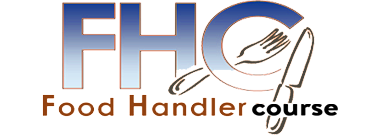This page is dedicated to the various topics covered in food safety and food handler courses throughout Canada. Course content varies slightly depending on the province because each province sets its own course outline and standards. To complete the course candidates must successfully complete a multiple choice test of approximately 55 questions with a minimum grade of 70%.
Outline of Food Safety and Food Handler Course
The following is a course outline of a basic food safety or food handlers course:
Food Borne Illnesses
Candidates will learn about the common food borne illnesses, the environments that they thrive in, sources and preventative measures. A large focus on food handler courses is on food borne illnesses and how stop and prevent their growth.
Microbiology
Candidates will receive a brief education in food microbiology. In order to have a good understanding on the sources and spread of food borne illnesses and infections it is important to have at least a brief background in microbiology.
Health and Hygiene
Proper health and hygiene are essential to preventing the spread of food borne illnesses. Candidates will learn how to maintain proper health and hygiene in the workplace and how it relates to illnesses and diseases.
Serving and Dispensing
Candidates will be aware of the food health hazards in serving and dispensing food. Candidates will learn proper techniques for food service and display.
Food Protection
Candidates will learn safe food preparation and handling procedures. Candidates will learn methods and procedures on keeping food sanitary and healthy.
Cleaning and Sanitizing
Clean and sanitized environments are essential when preparing, storing and handling food. Candidates will learn about dish washing facilities, cleaning techniques and proper sanitation and utensil and dish ware storage. Improper sanitation techniques are the main source of food borne illnesses.
Receiving and Storage
Candidates will learn techniques and requirements in receiving and storing food including proper storage facilities and storing environments for food to prevent the growth and spread of food borne illnesses.
Food Handler and food safety courses are designed to help candidates keep their family, co-workers, friends and customers healthy and safe. Register for a course today and learn simple and basic procedures for preventing food borne illnesses.
